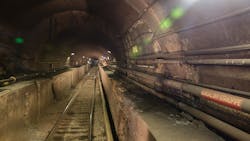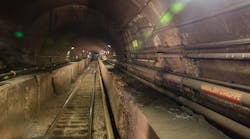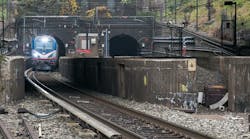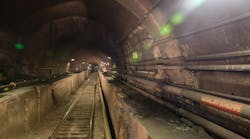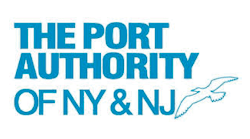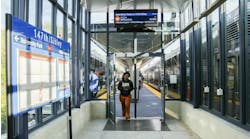Updated financial plan for Hudson Tunnel plan developed in partnership with FTA
An updated financial plan for the Hudson Tunnel Project, a cornerstone of the Gateway Program, has been developed with the Federal Transit Administration (FTA) and was submitted to FTA on Aug. 27. The plan includes a price increase of nearly $700 million from the 2020 financial plan, but project partners point out their commitment to managing costs and schedule is also reflected in the new financial plan.
“The Hudson Tunnel Project is of the utmost importance to the economic well-being of New Jersey, our region and our country,” said New Jersey Gov. Phil Murphy. “The updated financial plan that is being submitted today exhibits the commitment of our state and that of our partners to the commencement and completion of the single largest critical infrastructure project in the United States.”
What has gone up in cost?
The Hudson Tunnel Project elements include the construction of a new two-track rail tunnel beneath the Hudson River, the comprehensive rehabilitation of the existing 110-year-old North River Tunnel and the completion of the third and final section of the Hudson Yards Concrete Casing. The cost estimate for these elements is now projected to be $12.3 billion and while that number reflects an increase from the 2020 financial plan, it remains $500 million under the 2017 construction cost estimate of $12.7 billion.
The estimated construction cost of the new Hudson River Tunnel and third section of the Hudson Yards Concrete Casing is $10.1 billion, which is an increase of slightly more than three percent to the previous estimate of $9.8 billion. The estimated construction cost to rehabilitate the North River Tunnel is $2.2 billion, which is an increase of more than 22 percent over the previous estimate of $1.8 billion.
The estimated cost of the new tunnel and third section of casing is based on a contract packaging solution using a design-build procurement for the new tunnel’s civil works and including the concrete casing work, which project partners say will promote ultimate completion of the project faster and at less cost.
“Construction on the Hudson Tunnel Project cannot begin soon enough for the thousands of NJ Transit customers who must continue to rely on the century-old tunnel daily,” said Gateway Commission Co-Chair and New Jersey Commissioner Balpreet Grewal-Virk. “This financial plan is a major step toward finally putting shovels in the ground and getting to work building the rail infrastructure we need for the economy of the future.”
How will the project be funded?
Project partners report 50 percent of the total project construction costs will come from local funding commitments, which now sit at $6.1 billion – an increase of $552 million. The FY2022 Enacted Capital Program and Financing Plan from the state of New York includes sufficient funds to make all payments on a RRIF loan from the U.S. Department of Transportation. Additionally, the New Jersey Turnpike Authority will make payments to the Gateway Development Commission to meet required payments under a RRIF loan.
The Port Authority of New York and New Jersey has committed up to $2.7 billion to support the Hudson River Tunnel Project and Amtrak has increased its funding commitment to the project to $1.374 billion – an increase of $92 million from the 2020 financial plan.
“Amtrak is pleased to have upheld its commitment to the Hudson Tunnel Project by completing the acquisition of New York property needed for a future ventilation and emergency egress shaft,” said Gateway Commission Vice Chair and Amtrak Commissioner Tony Coscia. “Amtrak remains confident in the success of our partners and in the project’s success. Now is the time to move this project to construction once and for all.”
In a release outlining the new financial plan, the project partners said they were committed “to aggressively managing cost and schedule during the procurement and construction of the project, incentivizing contractors and seeking opportunities for early work to further mitigate cost and schedule risk.”
The partners say they are confident the new financial plan will qualify the project for an improved rating as it seeks $5.6 billion ($4.8 billion for construction and $820 million for financing) in federal funding from the FTA’s Capital Investment Grants Program. Projects must carry a rating of “medium” to be eligible for program funding; the project’s previous rating was Medium-Low for FY20 to FY21.
The updated financial plan also includes an anticipated Notice to Proceed of August 2023, which is an 18-month delay from the 2020 financial plan, but one that may be a better estimate following issuance of the Final Environmental Impact Statement and Record of Decision on May 28, 2021.
“All of the partners are fully committed to the Hudson Tunnel Project and have collectively committed to repay more than $6 billion in Federal loans to support construction,” said Gateway Commission Co-Chair and New York Commissioner Steven M. Cohen. “The project will create thousands of jobs up and down the American supply chain and help stimulate the U.S. economy. We must act without delay.”

Mischa Wanek-Libman | Group Editorial Director
Mischa Wanek-Libman is director of communications with Transdev North America. She has more than 20 years of experience working in the transportation industry covering construction projects, engineering challenges, transit and rail operations and best practices.
Wanek-Libman has held top editorial positions at freight rail and public transportation business-to-business publications including as editor-in-chief and editorial director of Mass Transit from 2018-2024. She has been recognized for editorial excellence through her individual work, as well as for collaborative content.
She is an active member of the American Public Transportation Association's Marketing and Communications Committee and served 14 years as a Board Observer on the National Railroad Construction and Maintenance Association (NRC) Board of Directors.
She is a graduate of Drake University in Des Moines, Iowa, where she earned a Bachelor of Arts degree in Journalism and Mass Communication.
